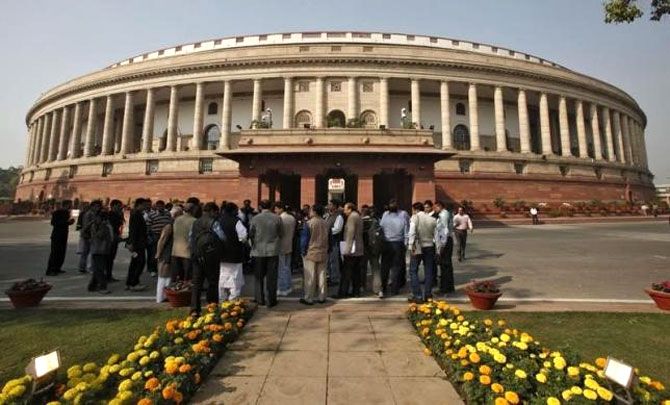The insolvency and bankruptcy code will strengthen the hands of lenders to recover outstanding debts by setting a deadline of 180 days for companies to pay or face liquidation

The Rajya Sabha passed a new bankruptcy code on Wednesday, as the opposition swung behind measures to take tougher action against corporate defaulters and help banks recover over $120 billion in troubled loans.
Prime Minister Narendra Modi, who completes two years in office this month, had promised to introduce the code to address bank debts and improve ease of doing business in Asia's third largest economy.
India's efforts to clip the wings of high-profile debtors suffered a setback in March when tycoon Vijay Mallya flew to London as bankers pressed him to repay about $1.4 billion owed by his defunct Kingfisher Airlines.
The insolvency and bankruptcy code, earlier passed by the Lok Sabha, will strengthen hands of lenders to recover outstanding debts by setting a deadline of 180 days for companies to pay or face liquidation.
"This is something which should put company promoters on guard," said M R Umarji, adviser to the Indian Banks' Association. "They will think twice before committing a default."
He said the bankers could initiate provisions of the law in ongoing default cases once the insolvency court and other required institutions were set up.
The World Bank estimates that winding up an ailing company in India typically takes four years, or twice as long as in China and Russia, with an average recovery of 25.7 cents on the dollar, one of the worst rates in emerging markets.
Under the new law, a debtor could be jailed for up to five years for concealing property or defrauding creditors. Bankrupt individuals would be barred from contesting elections as well.
Bankers say the courts are usually reluctant to sign "death warrants" against defaulting companies to safeguard jobs, often resulting in delays in winding-up procedures and poor loan recoveries.
The new law virtually empowers creditors to decide whether a defaulter is declared insolvent or not, though legally their decision could still be challenged in the higher courts.
Currently, over 70,000 liquidation cases are pending in debt recovery tribunals and courts.
Nikhil Shah, managing director of a consulting firm Alvarez & Marsal in India, said the law could unlock billions of dollars stuck in ailing firms but will not be easy to implement due to India's cumbersome legal system.












 © 2025
© 2025